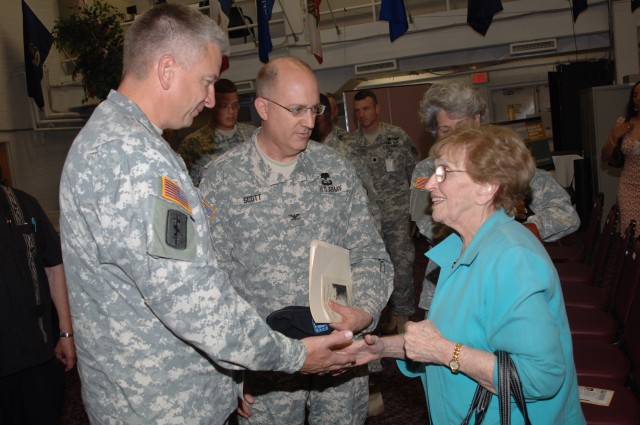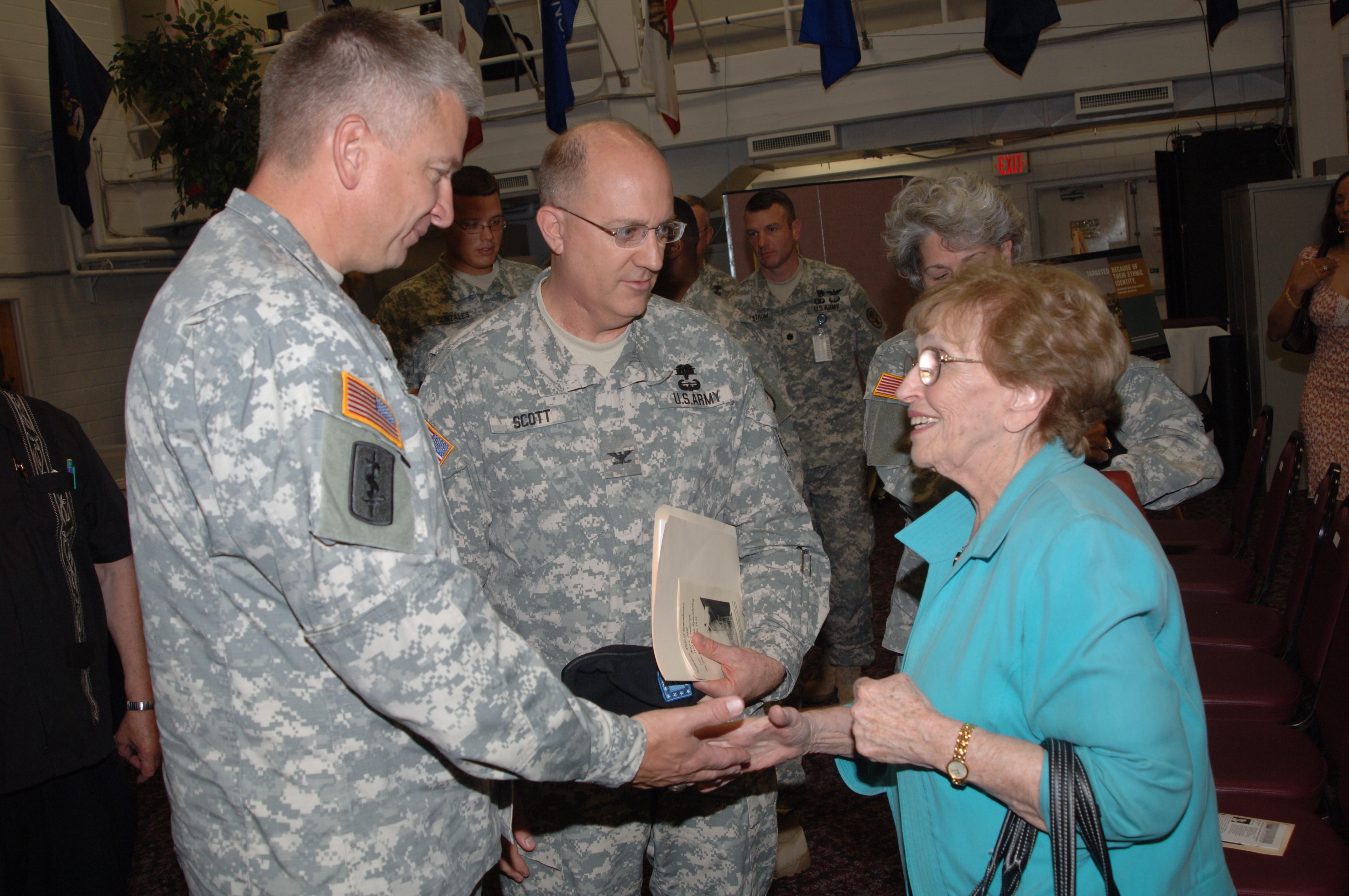
FORT SAM HOUSTON, Texas -- In 1938 on the night of Nov. 9, violence against Jews broke out across Germany.
Many believe that it was set-off by the German's anger over the assassination of a German official, Ernst vom Rath, in Paris by a Jewish teenager, Herschel Grynszpan (Greenspan).
However, others believed that this event was a well-thought-out plan, orchestrated by the German propaganda minister, Dr. Paul Joseph Goebbels, to instigate a mass riot against the Jews.
This night became known as "Kristallnacht," the "Night of Broken Glass," because of the shattered glass from store windows that littered the streets that night. On that night, close to 100 Jews were killed and hundreds more left injured. More than 1,000 synagogues were burned, with almost 7,500 Jewish businesses destroyed.
The morning after Kristallnacht, 30,000 German Jewish men were arrested and sent to concentration camps, where many of them perished.
This fateful night is the night that guest speaker, Maxine Cohen, director, Holocaust Memorial of San Antonio, chose to talk about when she addressed Fort Sam Houston on Holocaust Remembrance Day May 2 at the Army Community Service center.
Col. Larry Hanson, commander, U.S. Army Dental Command, welcomed the audience and said that Fort Sam Houston observes many celebrations of ethnic pride and accomplishments. He named some of the events that Sam Houston sponsors throughout the year, noting that this event is different.
"The Holocaust, a Day of Remembrance, is different," said Hanson "We are here today to remember a very dark time in the history of the world. We are here today to make sure that we do not allow the world to forget and repeat those mistakes."
"Kristallnacht ... stands out as a real turning point in the 12-year Nazi assault, for it marked the end of the initial stage of the persecution in which Jews lost their citizenship, their rights and their jobs; and the beginning of a far more menacing and deadly era," said Cohen.
During her address, Cohen recounted the events in Germany's history that led up to that somber night, on Nov. 9 in 1938, the beginning of the Holocaust and the largest revival of anti-Semitism in the world. She outlined accounts beginning with Adolph Hitler's rise to power in 1934 up through the Night of Broken Glass.
Cohen noted that Hitler "defined Jews not by their religion but by their race." Hitler used anti-Semitism as his platform, using the ideology that Germany was threatened by a gradual collapse through the Jewish race.
Hitler, a master of propaganda and persuasion, spoke to scores of mass audiences, calling for the German people to resist the Jews and to create a new empire, which would eventually rule the world. This movement was the inception of the Holocaust.
What Cohen attempts to relay to people during her lectures is a message - she wants people to remember.
"In remembering the horror, we try to look for the things that might make us more aware or to sensitize us to people all over, so that when we look into the face of strangers, we may see ourselves," said Cohen.
As the director of the Holocaust Memorial of San Antonio, Cohen administers and provides educational services to public and private schools in regards to the memorial. She also trains guest lecturers, teaches classes and lectures to various audiences. It has been 70 years since the Holocaust, a tragic time in world history that should not be forgotten.
In 1980, the U.S. Congress established the Days of Remembrance as our nation's annual commemoration of the Holocaust, a week set aside for remembering the victims of the Holocaust. The 2008 Days of Remembrance was April 27 through May 4, and Yom Hashoah (Holocaust Remembrance Day) was May 2.

Social Sharing